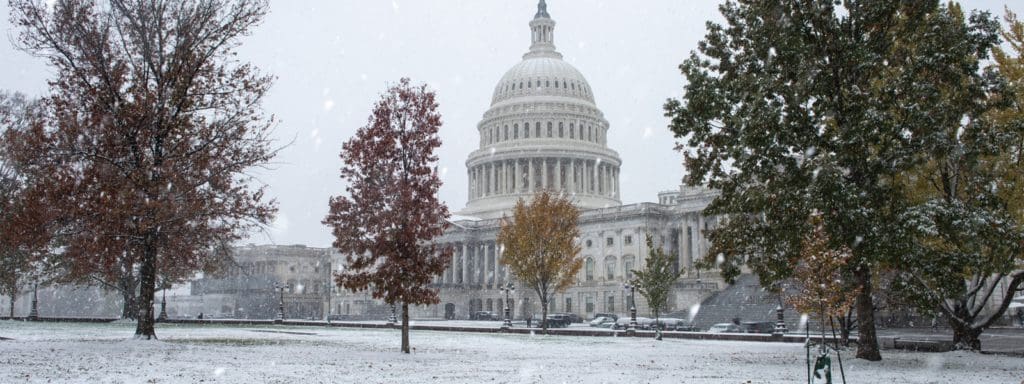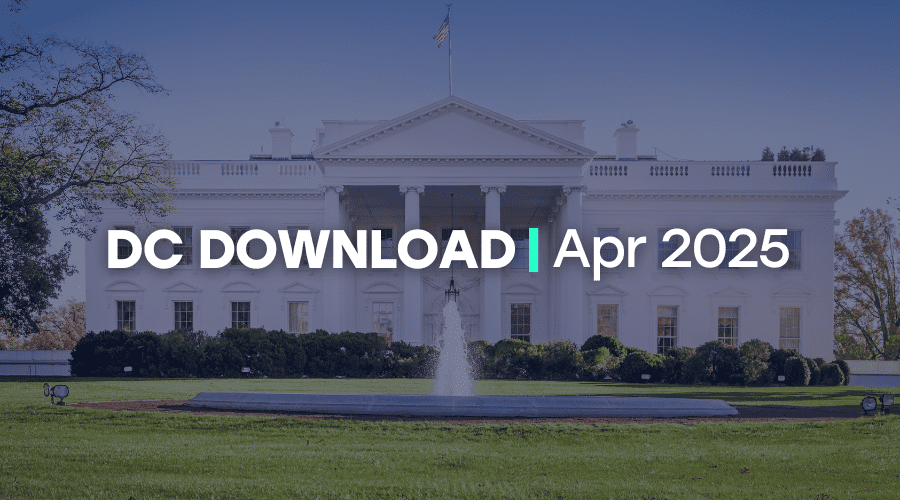We are days away from the Thanksgiving holiday and Congress is out of town for a one-week recess. Despite that, November has proven to be an active month for issues related to the charitable sector.
Congress Avoids Government Shutdown
Last week, Congress passed a continuing resolution just hours ahead of the midnight funding deadline, avoiding a government shutdown. This spending package will keep the government funded through December 20, and it gives lawmakers more time to find a compromise on government spending for Fiscal Year 2020. According to Roll Call, The bill also provides a 3.1% pay increase for military personnel, sets funding aside for conducting the decennial census, and extends funding for several health-care programs.
When Congress gets back in town from the Thanksgiving holiday recess, lawmakers will have an intense three-week legislative period to reach a compromise on 12 full-year funding bills, an important prerequisite to any larger agreement. Democrats and Republicans will have to find common ground on contentious issues like security along the U.S.-Mexico border to avert another government shutdown.
Legislation to Simplify the Private Foundation Excise Tax Introduced
Earlier this month, Reps. Danny Davis (D-IL) and George Holding (R-NC) introduced the Private Foundation Excise Tax Simplification Act (H.R. 4953), which would simplify the current two-tier private foundation excise tax to a revenue-neutral rate of 1.39%. Under the current two-tiered rate, foundations can be penalized with higher taxes when they give more during times of extraordinary need, such as after natural disasters. This disincentive reduces giving often when local communities’ needs are greatest.
Independent Sector joined other organizations in the charitable sector in sending a letter to the leadership in the House of Representatives and the leaders of the Ways and Means Committee in support of this proposal.
Nonprofit Organizations Urge UBIT Repeal
Ahead of the past funding deadline, 115 Members of the Unrelated Business Income Tax (UBIT) coalition sent a letter addressed to congressional leaders asking them to repeal the tax that nonprofits must pay on the qualified transportation benefits provided to their employees. The letter also asked leaders to include a repeal of this tax in the continuing resolution that Congress passed on November 21—unfortunately this request was not fulfilled.
Joint Economic Committee Report on the Charitable Deduction
Earlier this month, Senator Mike Lee (R-UT), the Chairman of the U.S. Congress Joint Economic Committee released a report titled “Reforming the Charitable Deduction”. This report recognizes the importance of the charitable deduction as a key part of American values and civil society, it also acknowledges that current tax policy has flaws that limit the impact of charitable giving.
The report states that while total individual giving has increased over time, its share of total giving has decreased. The share of giving coming from corporations, bequests, and foundations has increased while donations from middle-income donors has fallen. The report recognizes that a number of reforms, particularly the near-doubling of the standard deduction and the reduction of marginal tax rates, could reduce charitable giving.
The report also analyzes two proposals to expand the charitable deduction, one that would establish a universal or “above the line” deduction and one that would replace the current deduction with a credit for all taxpayers.
Tax Policy Center Releases Report on Charitable Giving Incentives
The Tax Policy Center recently published a report titled “Tax Incentives for Charitable Contributions”. The report examines four proposals to expand the charitable deduction, assessing the predicted change in giving from each alternative and measuring the change in federal revenue as the change in total tax burden. Three out of the four proposals presented in the report have a floor.



